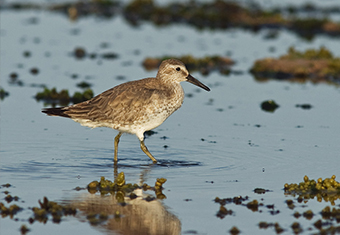

Abstract
Migratory animals have been declining across the globe. Conserving these species requires governance across their entire migratory range, enabling coordination and cooperation between multiple actors. Examples of these governance efforts include institutional arrangements, such as the Convention on Migratory Species and the US–Canada Migratory Bird Treaty. Yet despite their existence, there has been a dearth of research focusing empirically on the governance for conserving migratory species using an interdisciplinary approach. This knowledge gap requires attention as researching the governance for conserving migratory species can inform its improvement in practice. Hence, my study will focus on identifying and analyzing the structure and function of the sets of transboundary institutional arrangements for conserving migratory shorebirds globally. Not only do migratory shorebirds provide an adequate study system to help address such a knowledge gap, they also deserve attention in their own right given ongoing population declines. These birds have a wide distribution across the world within coarsely defined migratory regions, known as flyways, which allows for a comparative approach. In particular, I will enquire what drives the variation of such sets of institutional arrangements across flyways, as well as how the existing frameworks can be strengthened. To achieve these objectives, I will use an interdisciplinary and mixed–methods approach based on governance and ecological datasets related to the conservation of migratory shorebirds. My research will contribute to the conservation science literature with approaches and insights on the governance dimensions for migratory species conservation, as well as will inform conservation practice within the governance realm of migratory shorebird conservation. This project is a collaboration between scholars and practitioners from academia, government, and non–governmental organizations, with support from the University of Washington, the U.S. Fish and Wildlife Service, and Wetlands International.
